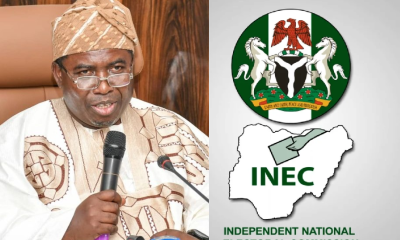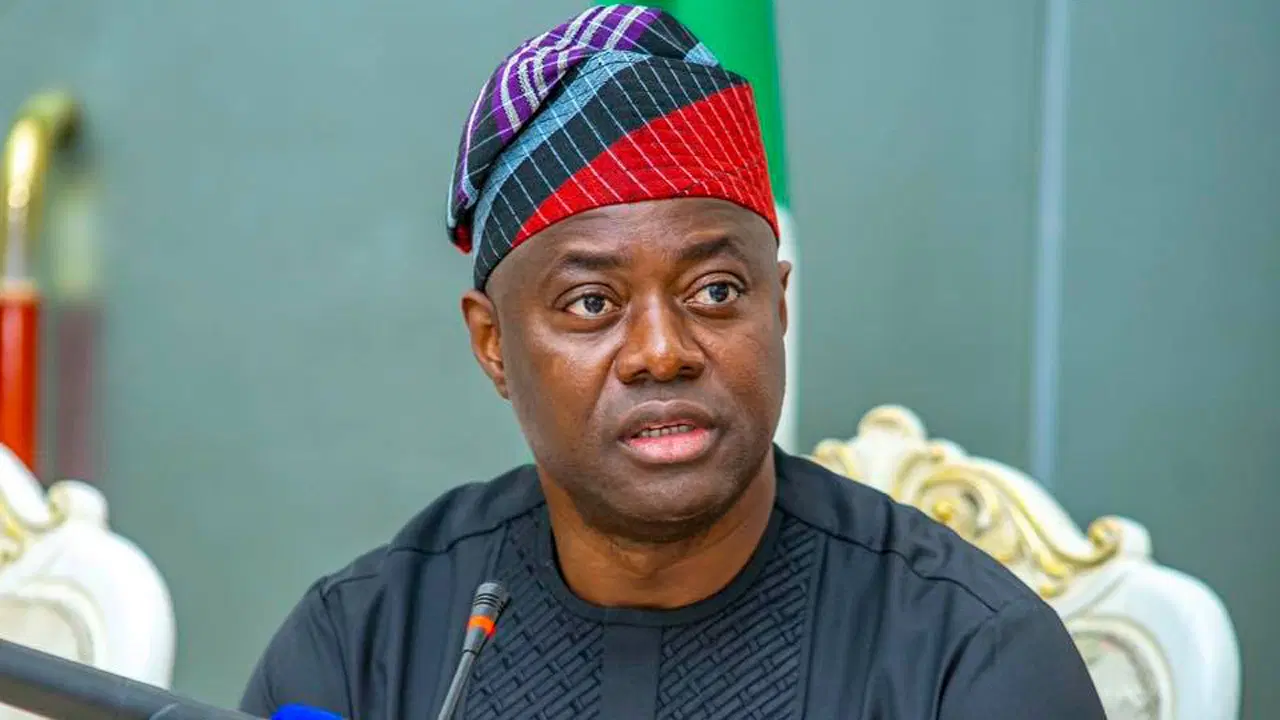Oyo State Governor Seyi Makinde has addressed public concerns surrounding the proposed establishment of a Sharia court in Oyo Town, emphasizing his unwavering commitment to upholding the Nigerian Constitution.
The controversy arose after the Oyo State chapter of the Supreme Council for Shari’ah in Nigeria announced plans to inaugurate a Sharia court in the region.
The group had circulated a flier inviting the public to the inauguration, initially scheduled for January 11, 2025, at the Muslim Community Islamic Centre in Oyo Town.
However, following growing scrutiny and discussions, the event has been postponed indefinitely.
In a statement, the council highlighted the peaceful nature of Islam and assured the public of its intentions, though no new date has been announced.
In a video shared on X (formerly Twitter) by his Senior Special Assistant on New Media, Olorundare Olamide, Governor Makinde directly addressed the situation.
Speaking on the issue, he reiterated his stance that while individuals and groups are free to pursue religious initiatives; these must operate within the legal boundaries of the Nigerian Constitution.
“They have brought up the issue of Sharia in Oyo, and they demanded the establishment of a Sharia court. I say that people may try, but for me, in Oyo State, our law is the Constitution of Nigeria, which is what I swore to uphold,” Makinde stated.
READ ALSO: Economic Hardship: Nigerians are hungry and angry — Gov. Makinde
The Governor clarified that any initiative in alignment with Nigeria’s laws would not face opposition from his administration. However, he issued a firm warning that attempts to establish any court outside the constitutional framework would be met with resistance.
“If they are within the law, fine. But if they are not, they should expect that I will insist the law is being followed,” he added.
Makinde’s statement underscores his effort to balance respect for religious sentiments with his duty to ensure legal integrity.
His administration has sought to maintain harmony among the diverse religious and cultural communities in Oyo State while firmly grounding governance in the rule of law.
The Governor’s response has drawn varied reactions from residents and stakeholders. Some commend his clear stance on upholding constitutional values, while others have called for dialogue to address the aspirations of the Muslim community advocating for the Sharia court.
Sharia law is implemented in several northern states in Nigeria, where it is recognized under the Constitution as a system of personal and family law for Muslims.
However, in southern states like Oyo, such courts are less prevalent, often sparking debates about their compatibility with the secular framework of governance enshrined in the Nigerian Constitution.
As discussions around the Sharia court proposal continue, Governor Makinde has emphasized the importance of adhering to constitutional principles.
His administration’s position signals a commitment to fostering an environment of lawful coexistence, even amid differing religious and cultural demands.
This development highlights the ongoing challenge of balancing religious expression with constitutional adherence, a critical issue in Nigeria’s multi-religious society.

 News7 days ago
News7 days ago
 Agribusiness6 days ago
Agribusiness6 days ago
 News6 days ago
News6 days ago
 Education1 week ago
Education1 week ago
 Football1 week ago
Football1 week ago
 Latest1 week ago
Latest1 week ago
 Football6 days ago
Football6 days ago
 Health1 week ago
Health1 week ago

